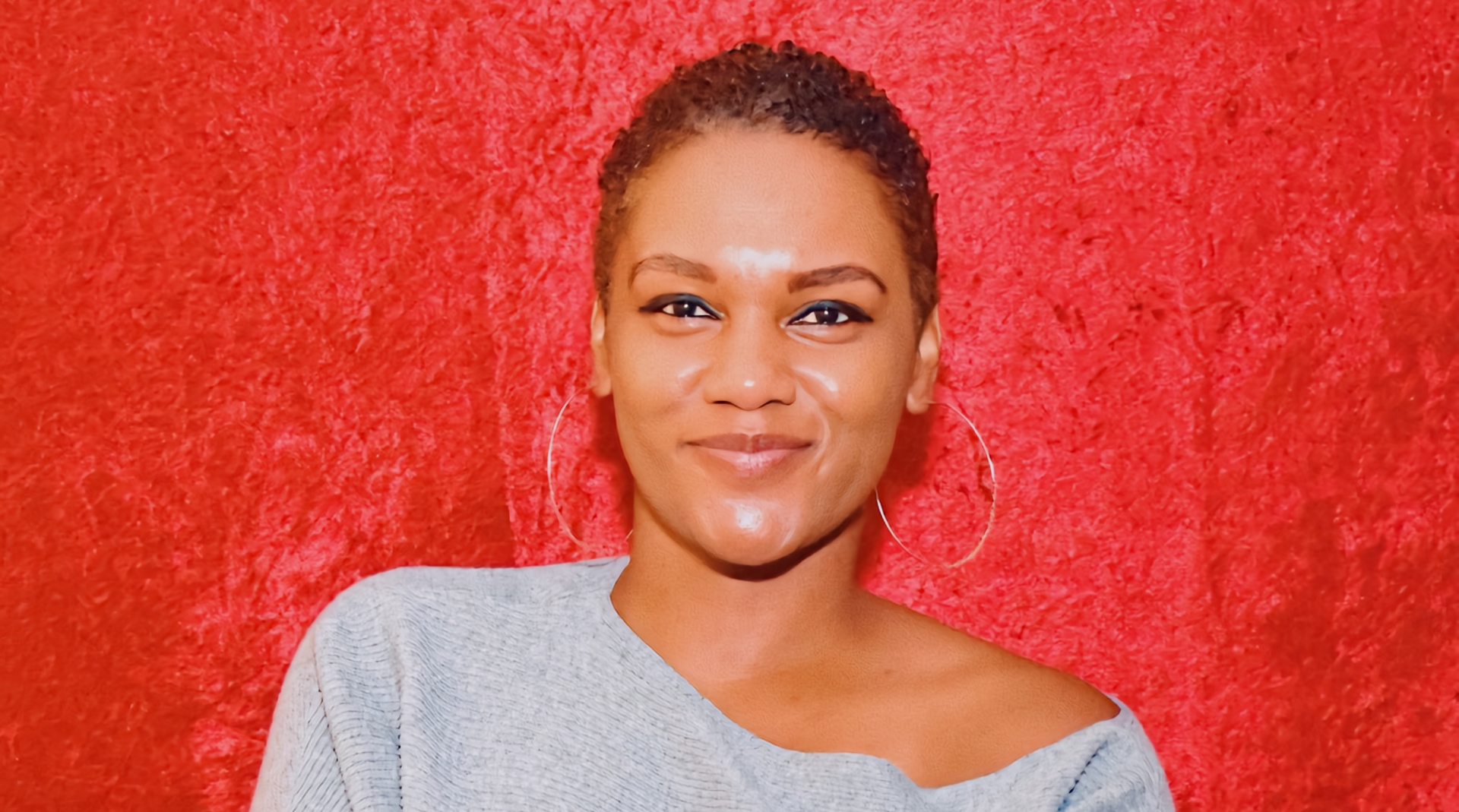
These five Guilford College entrepreneurs found a problem in the world. So they set out to discover the solution.
The original charter of Guilford College, drafted during the horse-and-buggy years of the 19th century, established a boarding school dedicated to the advancement of science and literature. These days, the College is equally dedicated to the advancement of the next Bill Gates. This is not a pivot by Guilford. Ideas have always taken seed in our students just as they have by those who developed a vaccine to suppress a global pandemic and made AI a reality. Those innovations might never have happened without allowing change makers the space to fail, as well as the support to try again. In that sense, the College has always been fertile ground to discover those light bulb moments. Here are five alumni who saw a problem in their corner of the world and set out to correct it. Some people call those change agents entrepreneurs. We call them Guilfordians.
Natalie Hodge '01: Telling stories through video and passion
In her own unblushing words, Natalie Hodge ’01 was a serial business failure. She sold cosmetics, a career that lasted about as long as this sentence. Next came real estate. “I thought I couldn’t have any less passion for something when I sold cosmetics, but then I got into real estate,” she says, only half-joking. “It just wasn’t for me.”
"When you can create this incredible experience of loving what you do and doing what you love, it's the best feeling in the world."
Neither was the travel company she opened. She didn’t know it at the time, but with each failed venture, Natalie was learning. More important she was closing in on finding her true passion of telling stories and helping others find their own passion.
Today Natalie owns and runs Rudy’s Girl Media in Martinsville, Va., a multimedia content development company. In September
The difference between Rudy’s Girl and all the others that came before it? “Passion,” she says. “I know people make money doing things they don’t love but that is not my recommendation for a great life. When you love what you do, it’s the best feeling in the world.”
Natalie comes from a family of entrepreneurs that goes back to her grandfather and grandmother, with third-grade educations, opening a convenience store in Martinsville in the late 1940s.
All these years later she’s never forgotten those roots. “My grandparents were African-Americans with limited educations who dared to think of themselves in a different way. That’s always been true for me.”
Kyle Kiser '06: Has this CEO found a cure for high drug prices?
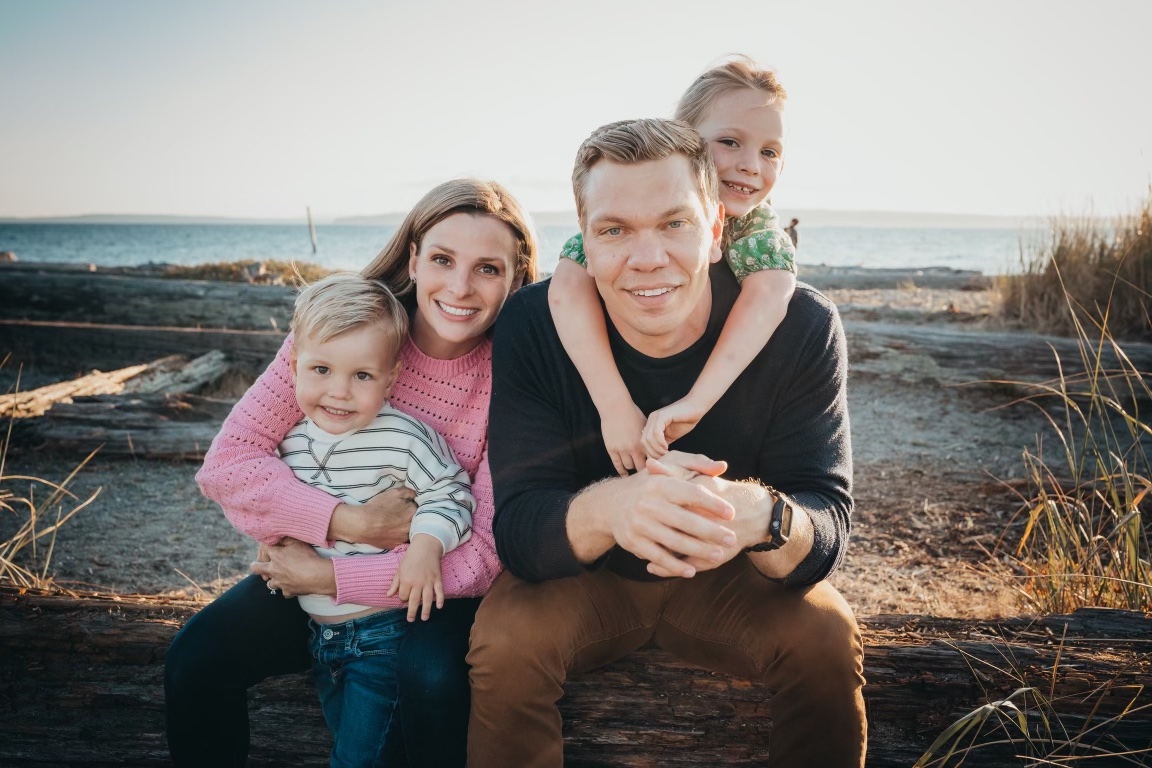
Kyle Kiser ’06 wasn’t one of those entrepreneurial wunderkinds out of college. Are you kidding? He couldn’t wait to start work in his family’s employment benefits business and hoped to work happily ever after.
"All I know is I wasn’t looking to sell a product or be a cog in the wheel. I wanted something a little more purposeful."
Like most entrepreneurs, that didn’t last. Kyle became frustrated with one of the most basic questions of the healthcare industry: Who picks up the check?
At the time there were two options for managing healthcare costs: The provider shifted costs to the patient or the employer. “There was no third option,” says Kyle, “so the more I worked in the business, the more I grew frustrated.”
But with that frustration came curiosity. Kyle has always been intrigued at how things work. Just have lunch with him at a restaurant. Chances are while you’re looking at the menu Kyle is looking at how the staff is working together — or not. “I’ve always liked looking at systems,” he says. “It’s interesting to me how the kitchen interacts with the hostess staff and how they both interact with the bar. It’s all a series of small systems working within one larger system. If you like to observe and think about systems, the American healthcare system is about the most complicated one you can observe in the world.”
Today Kyle is CEO of Arrive Health, which helps physicians make better (read: less expensive) decisions when prescribing medications.
Like all entrepreneurs, Kyle, a Guilford board of trustee who is married to Carly Kiser ’06, encountered a problem and went looking for a solution.
The problem: two out of three Americans delay or ignore health care because of the costs associated with medications.
The solution: Give doctors the data they need to provide alternate medications or pharmacies that are more affordable.
A CEO's income is nice, but Kyle says the money doesn’t come close to the satisfaction of helping others. He knew as a first-year at Guilford he wanted to do something meaningful after college. He just didn’t know what.
“All I know is I wasn’t looking to sell a product or be a cog in the wheel. I wanted something a little more purposeful,” he says. “I was clueless as to what that was, but isn’t that what Guilford helps you discover? Your purpose in life?”
Brian Lowit '98: Label owner is giving voice to unknown bands
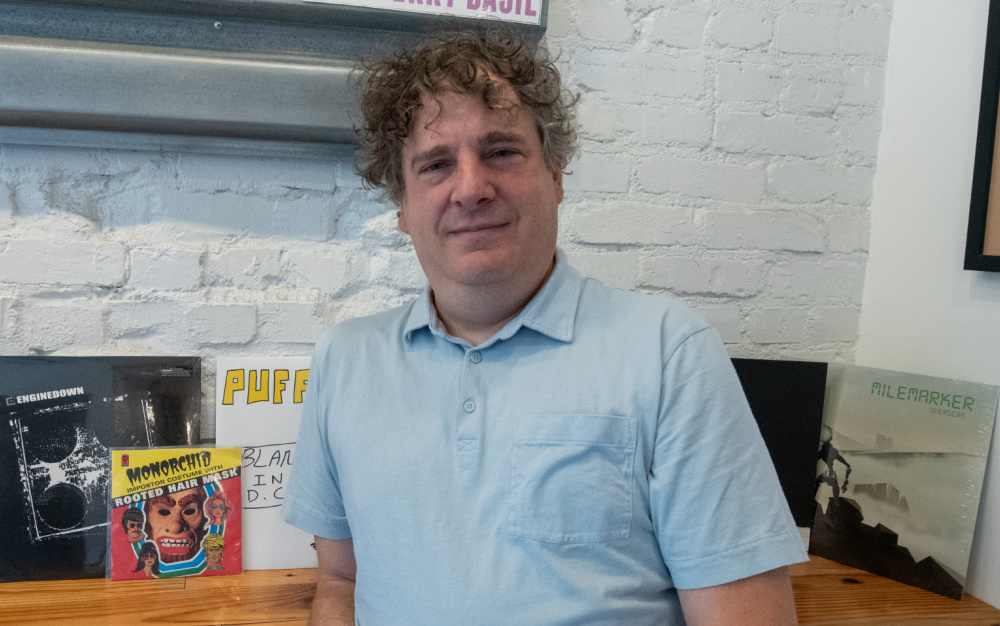
Brian Lowit ’98 didn’t wait to graduate from Guilford before showing off his entrepreneurial side. He was a sophomore spinning records at WQFS, the College’s radio station, when he seized his opportunity.
"I wanted to be more than just a fan of the music. I wanted to be more involved in it."
Brian grew up in Falls Church, Va., a suburb of Washington D.C., and was a big fan of the city’s legendary independent punk music scene. “I wanted to be more than just a fan of the music,” he says. “I wanted to be more involved in it, but it was frustrating being so far removed.”
Using connections he had with bands and other producers back home, he started his own record label. That’s the truncated story behind Lovitt Records, which has produced albums for more than 1,000 bands nationwide. Over the last three years at Guilford, Brian ran Lovitt Records out of the dorm room and apartments he lived in. Most start-ups require heavy support from venture capitalists. Brian worked in the College’s mailroom and as a tour guide for admission, usings his paychecks to fund the business.
The first album he produced was for a Washington punk band. Lovitt Records sold out all 1,000 albums. Brian wasn’t just the producer; he loaded the albums in his car and drove to record stores in Greensboro and across the state, persuading store owners to stocks their bins with them.
“I took that money and invested it back into another album for another band and just grew the business,” says Brian, who a member of Guilford’s Board of Trustees.
He still runs Lovitt Records and he also manages Dischord Records, a legendary punk label that has evolved into one of the most respected and enduring independent labels in the country.
Brian doesn’t just press vinyl for a living. He also scoops ice cream. He opened his own store, Mount Desert Ice Cream, in Washington in 2018.
“Guilford really handed me the opportunity of independence and creative thinking,” he says. “They never shot me down, they always encouraged me. I think that’s why so many people leave Guilford ready to succeed independently.”
Mike Reiney '17: His startup is pushing paper's big comeback
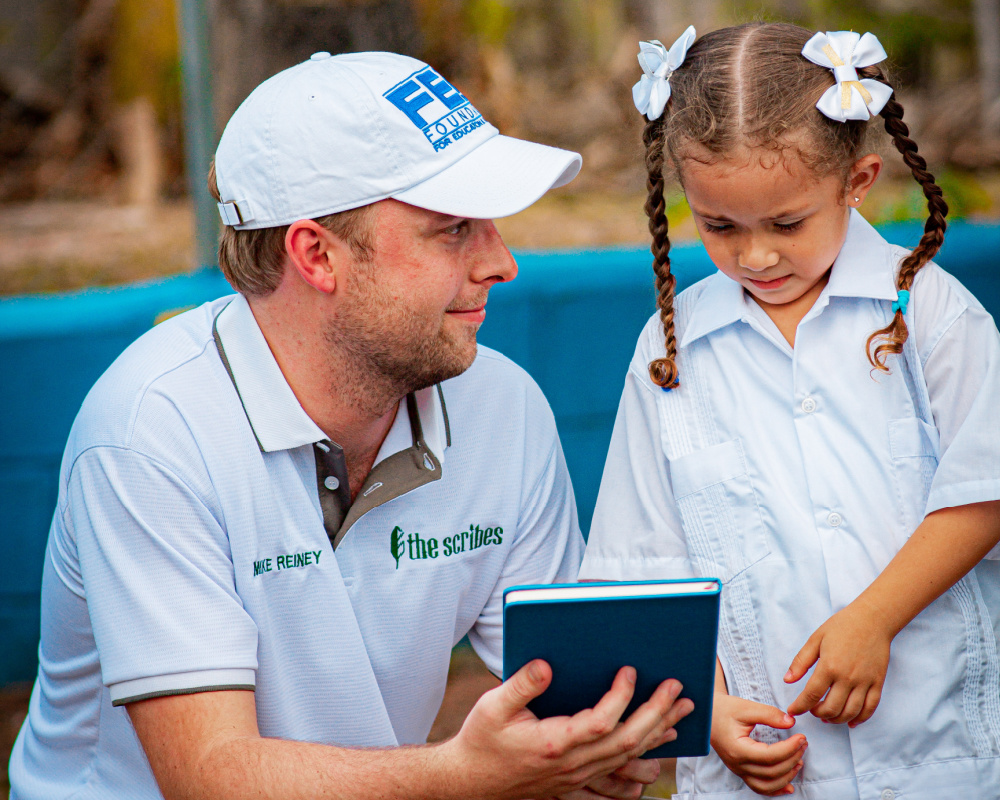
Remember paper? Post-its to stick. Memos to sign. Letters to write. Wistful paper executives remember. Ever since the world became digitized, they’ve seen consumers choose screens and clouds over paper and pens.
"The notebooks were always made in the simplest form and the ink would just bleed through the paper. I thought to myself, 'gosh we could make these so much better.' "
So guess which product Mike Reiney ’17, and his then-fiance Poojah Patel , chose to reinvent when they quit their jobs at a tech startup to build The Scribes? Even on paper, an online, luxury notebook company in a highly commoditized market seemed a bad idea.
Mike never saw it that way. Before starting The Scribes, he attended trade shows around the country. His suitcase would be filled with the obligatory promotional materials – keychains, koozies and notebooks. But of all the giveaways, it was the cheap, flimsy notebooks that made Mike cringe. Like many entrepreneurs, Mike saw a need not being filled and set out to fill that space.
“They were always made in the cheapest form and the ink would bleed,” he says. “I just thought to myself, ‘Gosh, we can make these so much better.’ ”
And The Scribes do. Last year, the company grossed more than $1 million in sales and is on pace to do even better this year.
The company has carved a niche in the highly competitive personal notebook industry not just by what they sell but what they do. The Scribes has donated thousands of notebooks to Boys & Girls Clubs, juvenile detention centers and Title I schools. When they go looking for new clients, like they did with Kirkland & Ellis, one of the largest law firms in the country, they first do their homework.
“We want to know which foundations the board members help out in their free time and let them know that we can help those foundations, too,” says Mike.
That quid-pro-quo business model works and word of mouth is spreading. “Once you have 20 big customers in your database and you bend over backwards for them, word is going to spread,” he says. “That makes the next sale a little easier.”
Dima Kash '12: She needed dough, so she baked a plan to stay at home
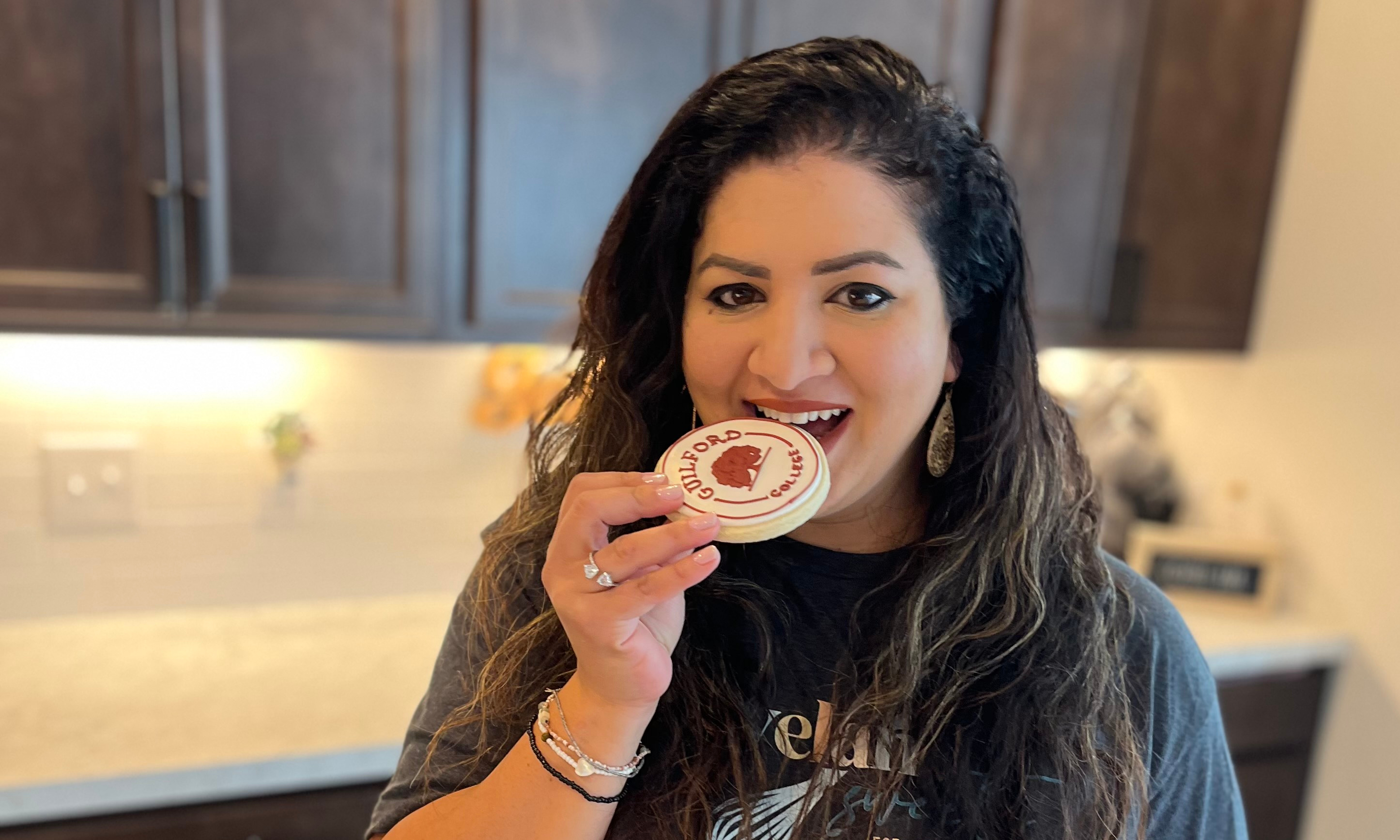
Many people discovered a love of baking during the pandemic. Dima Kash ’12 realized her passion could be more than a hobby.
"I think practice makes perfect -- whether that's in the kitchen or how I brand myself."
She was working for a startup accelerator in Cleveland when, in 2020, the world almost overnight pivoted to social distancing, Zoom and face masks. She was already on maternity leave taking care of Mark, her two-month-old son. That’s when she decided to give baking sweets a shot.
For years she’d been dabbling at baking, a hobby she started living in Mary Hobbs Hall. From cupcakes, she advanced to cookies, then cakes. Today, Cleveland Sweets is one of Cleveland's most popular bakeries, selling indecision-inducing arrays of cookies and cakes.
Two not-so-minor business decisions differentiate Cleveland Sweets from the rest of the city’s pastry pack. First, Dima runs Cleveland Sweets out of her home. That eliminates one of her company’s biggest expenses (rent) and gives her a nice home-business tax break at the end of the year. She has a license and is inspected regularly. Second, unlike her baking days at Guilford, all of Dima’s goodies are made from scratch. “You really can taste the difference,” she says.
Early in the pandemic, when health officials suggested limiting how man people could gather in one place, Dima switched her baker’s cap for a marketer’s hat and — voila! — Quarantine Cakes.
The eight pre-sliced cakes were a hit from the start. “Everyone wanted one,” says Dima, who was selling a dozen Quarantine Cakes a day.
Business has slowed down a bit since the pandemic’s end, but orders still keep Dima busy. Her customers range from the neighbor down the street to the City of Cleveland. If you want a wedding cake in June, it’s best to get on Dima’s schedule sooner rather than later. Such is the demand for Cleveland Sweets.
What makes her success even sweeter is Dima taught herself everything. From sales to inventory to marketing — most of her customers come through word of mouth or Instagram (@ClevelandSweets). “I’m pretty dedicated to my practice,” she says. “I think practice makes perfect whether that’s in the kitchen or in how I brand myself. From where I started up until now I feel like there's been a lot of growth in such a short time. There’s room to grow and that excites me.”

